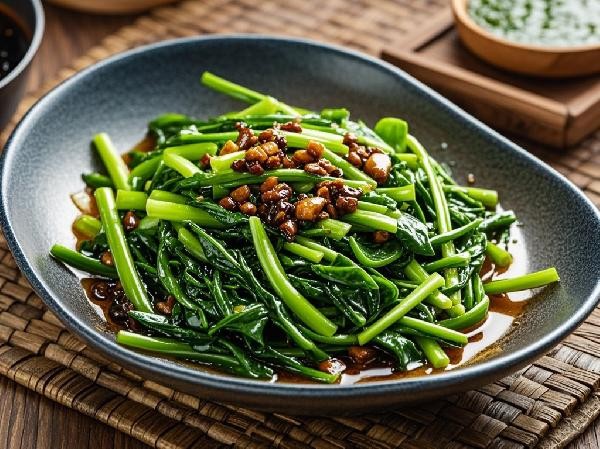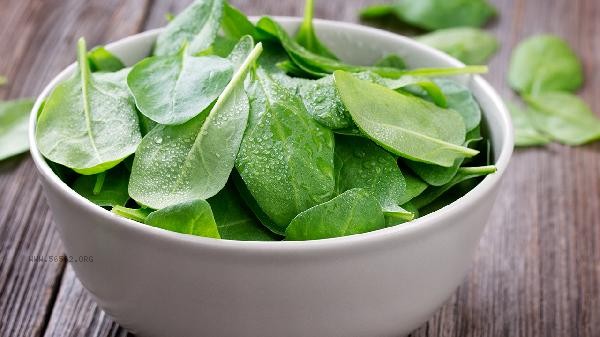Moderate consumption of water spinach is beneficial to the body, but special populations should pay attention to controlling their intake. Hollow cabbage is rich in nutrients such as vitamin A, vitamin C, potassium, and dietary fiber, which can help improve digestion and enhance immunity. However, its high oxalic acid content may affect the health of some populations.

1. Promote digestion
Water spinach contains rich dietary fiber, which can stimulate intestinal peristalsis and help with defecation. Its coarse fiber structure can increase the volume of food residue, soften feces, and shorten the residence time in the intestine. Moderate consumption by individuals with long-term constipation can help improve intestinal function, but during acute gastroenteritis attacks, intake should be reduced to avoid exacerbating diarrhea.
2. Supplement trace elements
Water spinach contains about 300 milligrams of potassium per 100 grams, which helps maintain electrolyte balance and heart function. The content of vitamin A exceeds one-third of the daily requirement, which can protect visual health. But people with renal insufficiency need to pay attention to controlling their intake and avoiding potassium accumulation that can cause hyperkalemia.
3. Antioxidant effect
Vitamin C and chlorophyll in water spinach have the effect of clearing free radicals, and their antioxidant activity helps to delay cell aging. When cooking, it is recommended to stir fry or blanch quickly. Heating at high temperatures for a long time can cause more than half of the vitamin C to be lost, reducing its nutritional value.

4. Affects mineral absorption
Water spinach has a high content of oxalic acid, which may combine with calcium to form calcium oxalate and affect absorption. Osteoporosis patients should avoid consuming high calcium foods together, and the general population can reduce oxalic acid content by about 40% through blanching treatment. Children and pregnant women during their growth and development period should pay attention to the interval between consumption.
5. Special population risk
Gout patients should control the frequency of water spinach intake. Although its purine content is moderate, it may increase metabolic burden. Individuals with thyroid dysfunction should be aware that glucosinolates in water spinach may interfere with iodine absorption. It is recommended that this group of people consume no more than two times a week, with each consumption not exceeding 200 grams.

For daily consumption of water spinach, it is recommended to choose the tender stem and leaf parts, as the old stem fibers are rough and difficult to digest. Soaking in salt water before cooking can remove some pesticide residues, and stir frying over high heat can maximize the retention of nutrients. People with renal insufficiency can blanch water spinach and discard the soup before cooking. It is more suitable for healthy people to consume it three to four times a week, and pay attention to maintaining dietary diversity by pairing it with different types of vegetables. When experiencing discomfort symptoms such as abdominal pain and diarrhea, it is recommended to discontinue consumption and consult a doctor.








Comments (0)
Leave a Comment
No comments yet
Be the first to share your thoughts!